
There are many ways for store owners to reduce the risk of employee theft and fraud. Background checks supplement interviews and screening questions on a job application. Manager training to know the signs and indicators that a worker may be engaging in theft activity of some sort is another preventative step. Electronic Article Surveillance systems and tags are helpful in deterring shoplifters and dishonest employees. Certainly Closed Circuit Television (CCTV), Public View monitors and mandatory package checks before leaving work all play a part in preventing internal criminal activity. One of the best tools an employer can use to reduce the chance they will even hire a thief in the first place is the use of pre-employment drug screening. The prospective employee would go to the lab, fill the cup and labs would send off the sample to have it checked for illegal substances. That has been the most common of the drug tests and many employers have relied on it to help them keep their stores profitable and safe.
Is this still an effective method for owners to use? With states loosening their own laws surrounding marijuana use it is a mixed bag. Not all states are legalizing it and it is still a federal crime to use, grow, distribute or possess it. So if you are in a state where it is still a crime to use marijuana and an applicant applies to a job with your company but he/she comes from a state where it has been “legalized” do you have them take a pre-employment drug test? What happens if they take the test and results show they use marijuana, do you not hire them even though it was “legal” where they came from? This can pose a dilemma for store owners. If you do hire them, do you put yourself at risk for discriminating against someone from your own state who failed and did not get hired based on that result?
Leaving the marijuana out of the equation for the moment, there is still room for drug testing in the workplace, both pre-screening and random drug testing of employees. Drug screening can identify other illegal substances in addition to marijuana. According to thebalancecareers.com, “A typical drug test for employment purposes screens for drugs including amphetamines, cocaine, marijuana, opiates, nicotine, and alcohol.” While you may decide to overlook positive results for marijuana you can still turn down applicants for the other drugs. States may be legalizing marijuana but the debates about the safety and effects of the drug on behavior remain a concern. Just because it is legal does not mean you necessarily want someone who uses this drug or any other drug working for your business. Pre-employment drug screening is still an effective tool in your efforts to combat theft and safety concerns.
Why test for drugs in the first place? By testing and screening out applicants who test positive you significantly reduce the risk of hiring someone who very well may steal from your store. It may be cash or merchandise but they have a habit to feed and they still have bills to pay and they are not going to feed that habit on a retail job. Working in the store gives them access to money and merchandise that will provide the resources for their addiction. Another reason to test is to keep your store safe. Someone who is illegally using drugs or coming to work under the influence of drugs or alcohol can be a cause of an accident or can be the victim of an injury in the workplace incurred while under the influence. Whether they cause the accident or are the victim of an accident, you can end up paying for it. There is also the safety of your other employees to consider. Someone under the influence of the wrong drugs can be unstable and volatile. What is it that is going to trigger a violent action on their part? Giving them a direction or task they don’t want to do? How about a customer that says something that sets off your employee. There is no place for violence or theft in the workplace and pre-employment drug screening can help prevent both from happening.
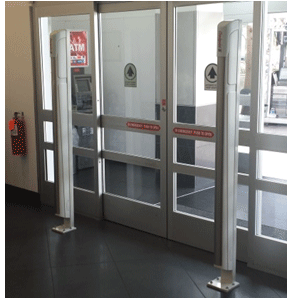
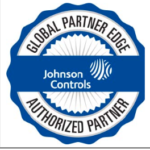
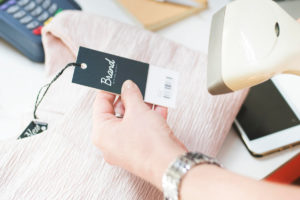
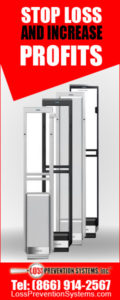 Have you ever found yourself in a situation where you have to make a decision on a purchase and you have to determine what is going to be best for your situation? I know that car shopping is one of those purchases where I have to take multiple factors into consideration and it isn’t always just about cost. I have to be able to accommodate at least 5 adults and perhaps even 6 if my mother-in-law is included in a ride. I need to get decent gas mileage because I never know who may have to use it and all of our work so I don’t want to fill it every day. I need dependability, I’ve had too many vehicle break-downs and I don’t want a breakdown on my wife if I can help it. Before I make a purchase I search customer reviews of vehicles and automotive expert ratings on websites such as Edmunds or Kelly Blue Book. The vehicle has to meet my requirements or I have to pass on it regardless of how good the deal may appear to be. The same thing can be true for a retailer when determining the best Electronic Article Surveillance (EAS) System and tags to use to combat theft related shortage.
Have you ever found yourself in a situation where you have to make a decision on a purchase and you have to determine what is going to be best for your situation? I know that car shopping is one of those purchases where I have to take multiple factors into consideration and it isn’t always just about cost. I have to be able to accommodate at least 5 adults and perhaps even 6 if my mother-in-law is included in a ride. I need to get decent gas mileage because I never know who may have to use it and all of our work so I don’t want to fill it every day. I need dependability, I’ve had too many vehicle break-downs and I don’t want a breakdown on my wife if I can help it. Before I make a purchase I search customer reviews of vehicles and automotive expert ratings on websites such as Edmunds or Kelly Blue Book. The vehicle has to meet my requirements or I have to pass on it regardless of how good the deal may appear to be. The same thing can be true for a retailer when determining the best Electronic Article Surveillance (EAS) System and tags to use to combat theft related shortage.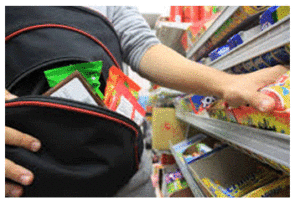 I was once asked why I kept toys on my desk in my Loss Prevention office. I had two reasons, the first was they were collectible superhero figurines (The Tick to be precise) and the other was to keep children entertained. It is a sad fact in Retail Loss Prevention but there are children who shoplift, there are parents who shoplift and there are parents who use their children to help shoplift. As a Loss Prevention professional, it is not hard to handle an adult who steals. There may be anger, tears, and pleading but these are adults and they made a choice to steal so there should be consequences. What is not so easy to cope with is the child who has to sit in the office while the parent is being processed and does not understand what is taking place. There were many instances when I had to try to keep these young ones entertained as mom or dad were answering questions about the crime, providing personal information or trying to contact a family member or friend who would be willing to pick up the child. Add to the mix a parent who is throwing a conniption fit or making the scenario worse by bawling and wailing in front of the child begging you to let them go “Just this one time and it won’t ever happen again, I promise.” It becomes quite annoying. It also upsets the child who becomes a prop for the parent. The toys were my prop to entertain the children in a pinch.
I was once asked why I kept toys on my desk in my Loss Prevention office. I had two reasons, the first was they were collectible superhero figurines (The Tick to be precise) and the other was to keep children entertained. It is a sad fact in Retail Loss Prevention but there are children who shoplift, there are parents who shoplift and there are parents who use their children to help shoplift. As a Loss Prevention professional, it is not hard to handle an adult who steals. There may be anger, tears, and pleading but these are adults and they made a choice to steal so there should be consequences. What is not so easy to cope with is the child who has to sit in the office while the parent is being processed and does not understand what is taking place. There were many instances when I had to try to keep these young ones entertained as mom or dad were answering questions about the crime, providing personal information or trying to contact a family member or friend who would be willing to pick up the child. Add to the mix a parent who is throwing a conniption fit or making the scenario worse by bawling and wailing in front of the child begging you to let them go “Just this one time and it won’t ever happen again, I promise.” It becomes quite annoying. It also upsets the child who becomes a prop for the parent. The toys were my prop to entertain the children in a pinch.